Custom Software Development Types and Examples
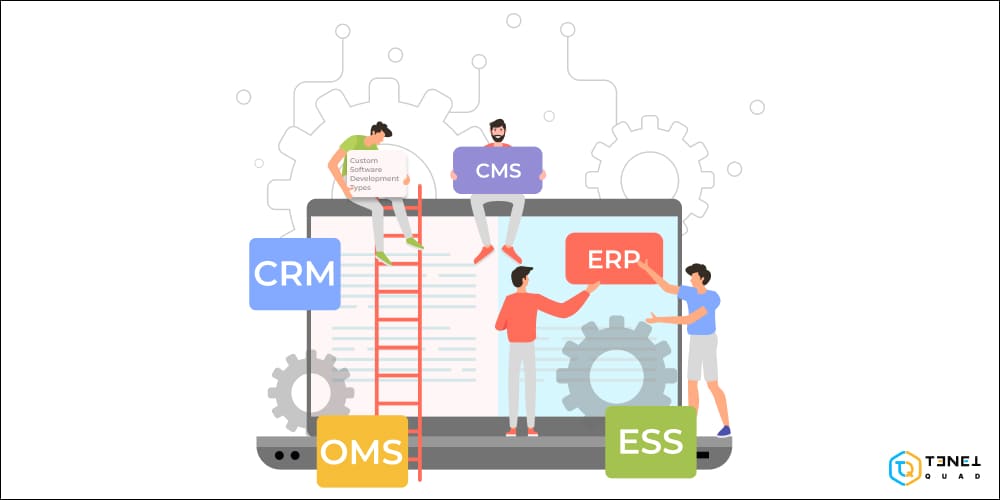
Managing a business means handling many different tasks. To keep things managing smoothly online, custom software development can be a game-changer. As businesses grow, they need a solution that covers all areas and tackles any challenges that come up.
In this blog, we’ll cover
- What custom software development is
- Different types of custom software
- Examples of popular custom software
- Why your business needs custom software
What is Custom Software Development?
Every business has its own objectives and challenges. Custom software solutions are designed specifically to address these challenges, streamline operations, and maximize profitability.
Unlike off-the-shelf software, which offers generic functionality, custom software is tailored to align with a company’s branding, management style, business processes, and goals. This personalized approach enables businesses to stand out, target specific audiences, and reach more potential customers effectively.
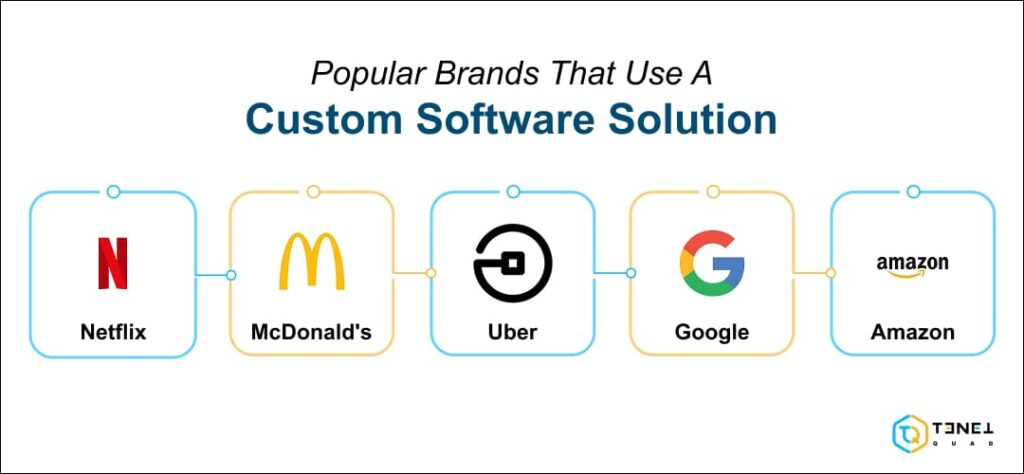
Industry leaders recognize custom software solutions as a key driver of innovation in business technology. Organizations adopt custom software for various reasons, including
- Automating manual data entry
- Reducing costs, minimizing risks, and preventing duplicate work
- Allowing employees to focus on higher-value tasks, saving time
- Enhancing resource management and data sharing
- Reducing manual errors
Beyond these benefits, the growing demand for custom software development reflects its ability to deliver tailored solutions that meet evolving business needs.
Types of Custom Software Solutions with Examples
You’re likely familiar with some of the most common types of custom software solutions. However, understanding the details is essential when choosing the right one for your business. Let’s explore them in depth.
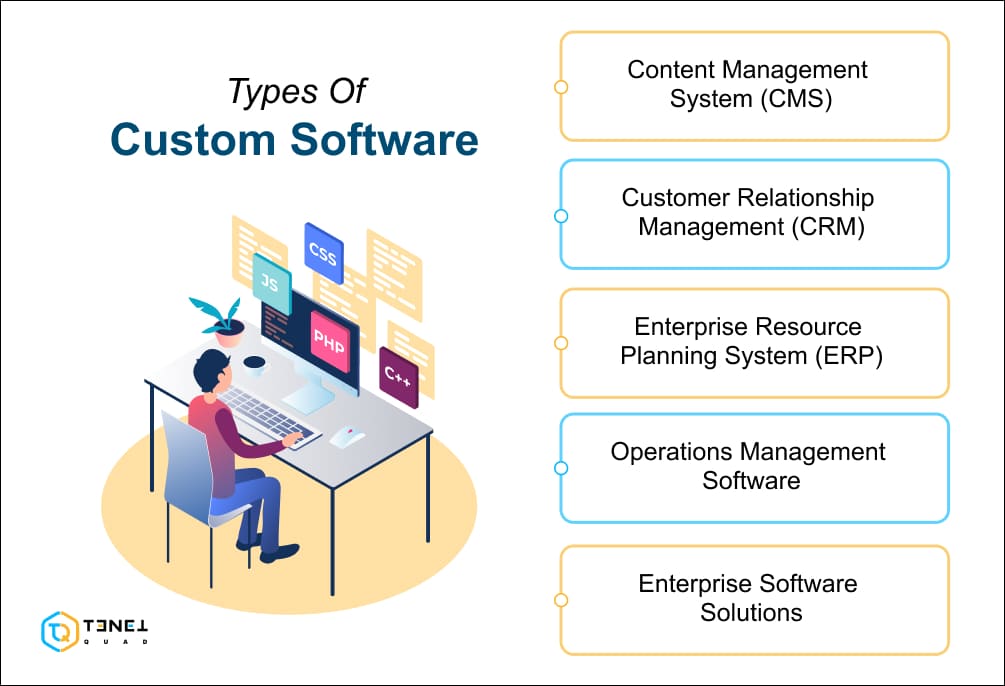
Content Management System (CMS)
A Content Management System (CMS) allows you to update and manage website content—such as posts, blogs, and documents—without needing a web developer. It simplifies essential tasks, enhances website management, and enables businesses to create new pages without coding from scratch. Additionally, a CMS helps reduce costs related to web page creation, image storage, and other necessary site management tasks.
Key Features of a Content Management System:
- Efficient management of unstructured information
- Streamlined content creation and publishing
- Seamless content delivery across applications
- Support for content categorization and workflow management
- Organized storage of digital files in nested folders
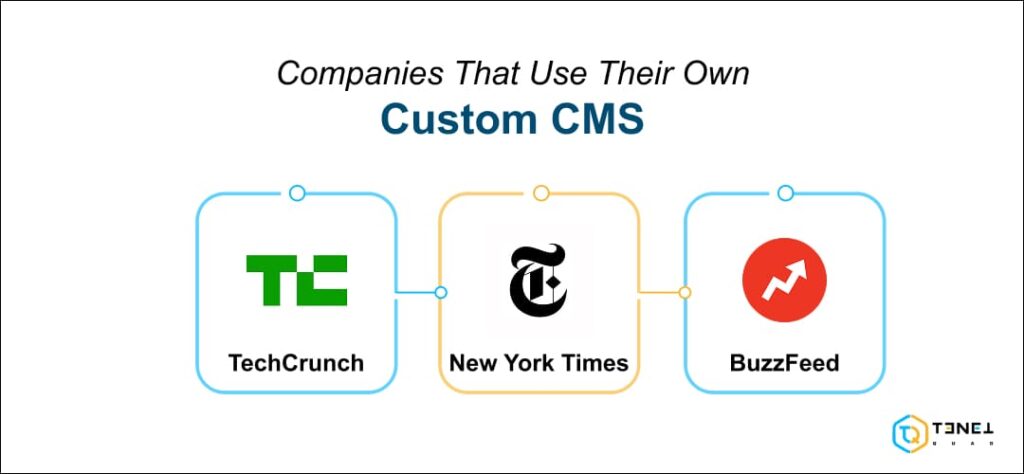
Customer Relationship Management (CRM)
Customer Relationship Management (CRM) software helps businesses track and manage interactions with customers, referrals, potential clients, and vendors—primarily benefiting marketing and sales teams. It centralizes customer data in a single repository, making it easier to organize, store, and access key information. Additionally, CRM software automates common processes, enhancing productivity and performance tracking.
Key Features of CRM Software:
- Stores customer details, such as names and addresses
- Tracks interaction history and documents communications with potential or existing customers
- Facilitates lead management and nurturing
- Integrates with email services like Gmail, Yahoo, and Outlook
- Manages quotes, proposals, and sales processes efficiently
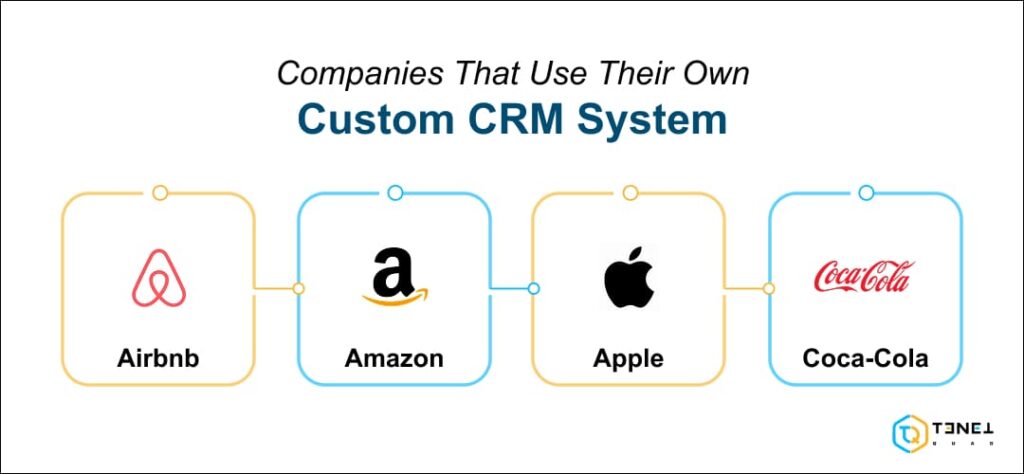
Enterprise Resource Planning (ERP) System
Enterprise Resource Planning (ERP) systems streamline and integrate day-to-day business operations, including project management, supply chain management, accounting, compliance, procurement, and risk management. By consolidating multiple business functions into a single, customized system, ERP solutions enhance efficiency and reduce unnecessary data duplication.
Key Features of ERP Systems:
- Provides seamless data analysis and monitoring through a fully integrated, intuitive platform
- Automates tedious tasks such as data entry, accounting, invoicing, and reporting
- Facilitates sales and revenue management for improved financial oversight
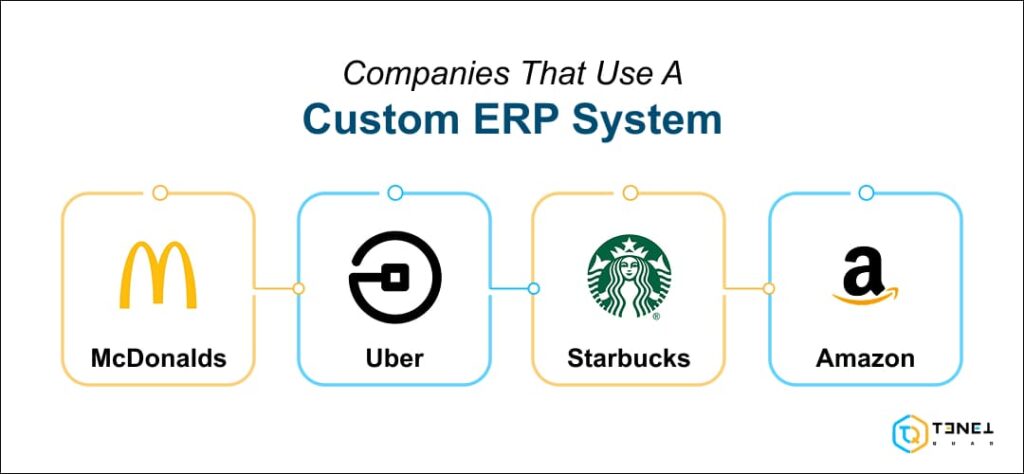
Operations Management Software
Operations management software enables businesses to automate manufacturing processes and oversee multiple operations simultaneously. Its primary goal is to enhance efficiency and effectiveness, ensuring high-quality outcomes and seamless delivery to customers.
Key Features of Operations Management Software:
- Enhances reliability through analytics-based planning
- Standardizes operational processes while improving quality and regulatory compliance
- Reduces inventory costs with precise tracking and planning
- Minimizes operational risks and identifies issues such as defective products and delays
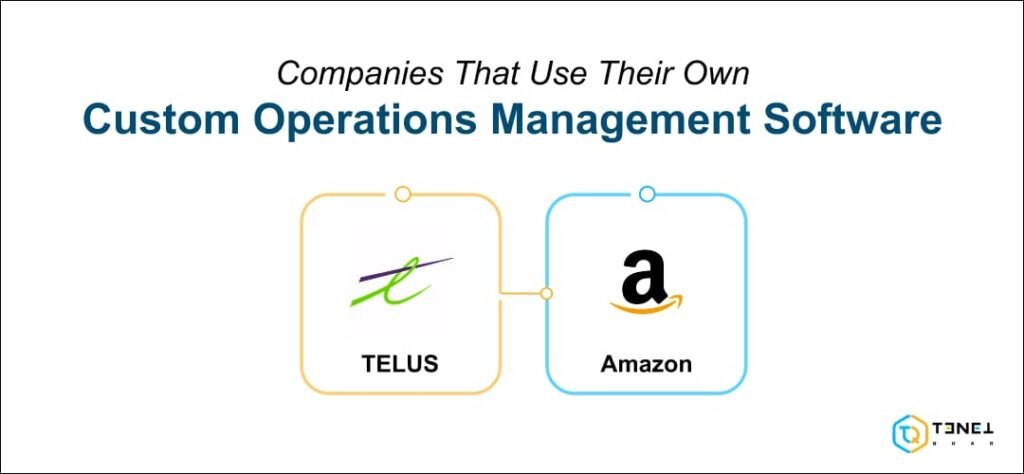
Enterprise Software Solutions
Enterprise software solutions help businesses streamline operations and enhance management reporting. These solutions support tasks such as interactive product catalogs, seamless online payments, automated billing, and robust security. Investing in custom software development tailored to these objectives can drive significant business improvements.
Key Features of Enterprise Software Solutions:
- Tracks, analyzes, and reports financial data to support finance teams
- Provides a comprehensive employee management platform
- Enhances manufacturing efficiency through strategic planning, raw material sourcing, and demand forecasting
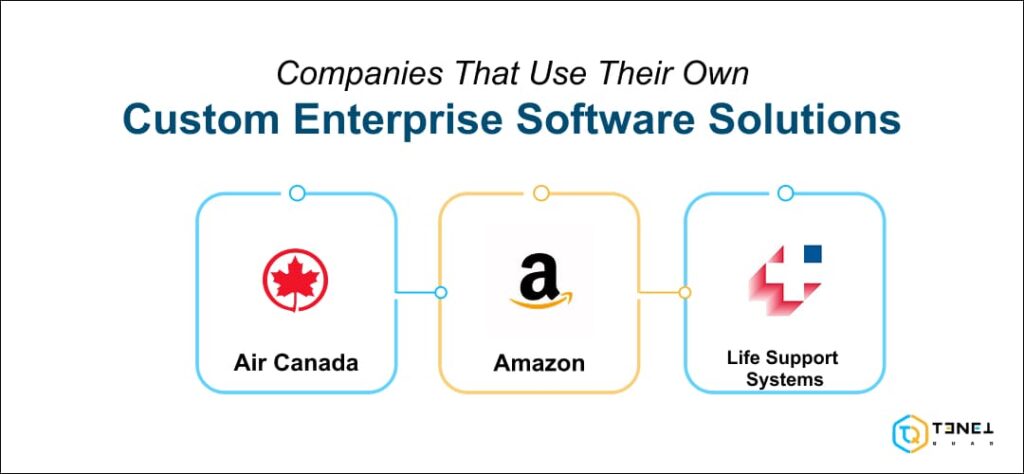
Custom Software Development for Your Business
We’ve explored how custom software can enhance business efficiency and drive growth. Now, let’s look at the key benefits of investing in a custom software development service for your enterprise.
Key Benefits of Custom Software Development:
- Tailored to Your Needs: Designed specifically to address your unique business requirements and challenges.
- Long-Term Investment: Eliminates the need for costly hardware solutions and software licenses, helping you save resources.
- Enhanced Security: Since it’s built exclusively for your organization, it offers a more secure alternative to off-the-shelf software.
- Reliable Technical Support: A trusted development partner will provide ongoing guidance and support throughout the software’s lifecycle.
- Seamless Integration: Easily integrates with your existing technologies and software, streamlining operations.
- Adaptable and Scalable: Custom solutions can evolve with your business, allowing for updates and modifications as needed.
- Competitive Advantage: A well-developed custom software solution strengthens your business by aligning seamlessly with your operational ecosystem.
Choosing the right development partner is crucial to ensuring a successful software solution that meets your business goals.
Learn more about the How to Choose a Software Development Company
Frequently Asked Questions (FAQ)
How Long Does It Take to Develop a Custom Solution?
The timeline for developing a custom software solution depends on several factors, including the development approach, level of customization, use of pre-built resources, chosen frameworks, and required integrations. Each project is unique, and the complexity of the solution plays a significant role in determining the overall development time.
Is Custom Software Development Limited to Specific Industries?
Not at all. Custom software solutions can be tailored to any industry or business niche. Digital transformation is not confined to a single sector—whether you operate in healthcare, automotive, travel and hospitality, real estate, banking, or any other field, custom software can be designed to meet your specific needs and streamline your operations.
Why Does My Business Need a Custom Solution?
A custom software solution is designed to align with your business’s unique processes and operational needs, ensuring seamless automation and efficiency. While off-the-shelf software may support some tasks, it often lacks the flexibility to meet all your specific requirements—making customization essential for optimal performance and growth.
Are Custom Software Solutions Expensive?
Developing a custom software solution does require an investment, but the overall cost depends on several factors, including complexity, features, functionalities, and development time. The cost varies from project to project—while it may be higher for some, it could be more affordable for others. Ultimately, custom software is a long-term investment that provides tailored solutions to meet your specific business needs.





